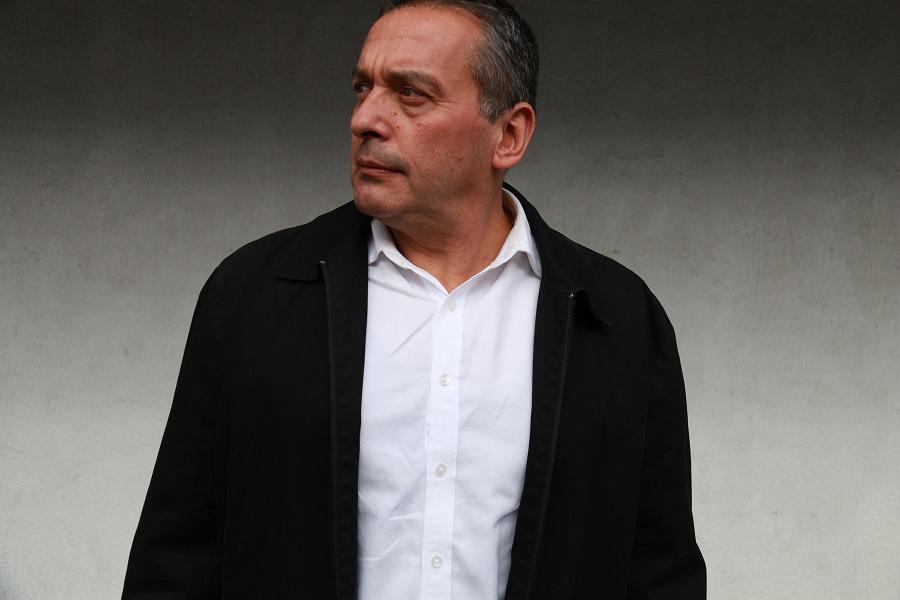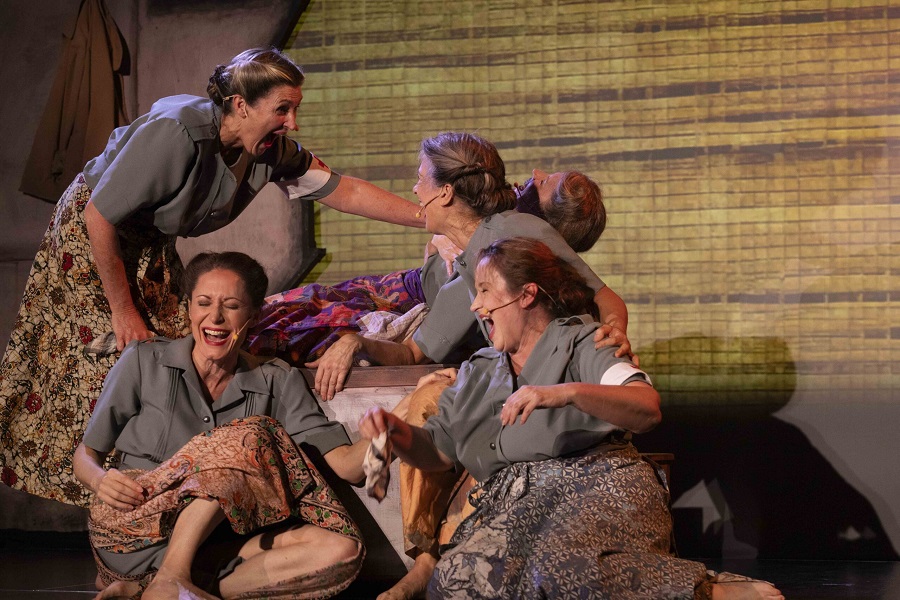
Canberra Writers Festival opens on Wednesday with an extraordinary line-up of authors, but few of them are quite so well known as Christos Tsiolkas, beloved, the festival tells us, “because of his provocations”.
When I catch up with Tsiolkas by phone to his home in Melbourne he’s not so much being provocative as busy, having just finished a literary workshop on the Mornington Peninsula and now racing to a deadline in his guise as film critic for The Saturday Paper.
Tsiolkas’ list of provocations is formidable, from his debut novel, Loaded, in 1995 to the fearsome Dead Europe, followed by The Slap, Barracuda, Merciless Gods, Damascus, 7½ and The In-Between, published last year.
Several have been made into films and The Slap, which became a household word in Australia, has seen two major TV adaptations here and in the US.
He is regarded with particular affection by filmgoing Canberrans, who remember him as a smiling face behind the counter at the old Electric Shadows Bookshop when he lived here.
Tsiolkas is quite happy to accept the status of provocateur, but on one proviso, “that people who are enjoying or are engaged by my provocation must understand that it comes from a completely serious position.” In other words, it’s not just for the sake of provocation.
He’ll mainly be here because of his status as a novelist, but he will also join festival director Beejay Silcox and Melbourne critic James Jiang in a discussion, The Case for Critic, on the role of literary criticism in shaping public discourse, at the National Film and Sound Archive on the weekend.
That’s a subject dear to Tsiolka’s heart, for he is both a literary writer and a working film critic who fears that we are living in an age where criticism amounts to giving a book the thumbs up or the thumbs down, with some reviewers simply going online and reading three or four reviews, then doing a mash of them all.
He is determinedly not a literary critic, telling me, “it’s hard to be a writer and to write criticism of other writers so, one decision I made was not to write about people I know… I love film and cinema where I can be free to be creative in my critical writing.”
As for literary criticism, he loves it.
“I love reading criticism, thinking about and asking what it is that makes a good book or an unsuccessful one,” he says.
He deplores the cancel-culture that sees the banning of frank critics, telling me how much he admired the long-time film critic for the New Yorker, Pauline Kael, who was more than once banned.
“Her writing was like jazz and although I disagreed with half of her reviews, her observations were sharp.”
“We need have to have critical reviewing,” he says, “we can’t just have rewrites of releases that come from the publicity department .”
When Tsiolkas takes to the podium at the National Museum’s Gandel Atrium on Saturday he will reflect on his life on and off the page with his friend and fellow Melburnian, Claire Wright.
There’ll be a probable but not exclusive focus on his 2023 novel the In-Between, a love story between two middle-aged men, but told with deep reflections on other relationships, too.
The book focuses on two primary characters in their 50s – Perry and Ivan, so the title might be seen as a metaphor for what the festival describes as “midlife solace”, depicting how the two find each other and explore their relationship.
But when I pull my copy from the bookcase, it falls open at page 283 and I read of the character Léna: “Today she feels that she is on the border of time and floating above the world. As if she is in the in-between. As if she needs an anchor.”
Lena, Tsiolkas explains, is in her early 40s, so not really middle-aged. A French woman living in Greece, she falls in love with a decidedly strong Greek woman, Vera, described in Tsiolkas’s characteristically explicit manner.
It’s what he sees as a “call-and-response” to what is being shaped with the older characters and it speaks to all aspects of those who live in the in-between.”
As he’s about to head back to the desk to finish his film review, I ask about his present projects.
He has a couple of film scripts in tow, including an exciting one for 7½, to be directed by former Canberran Rhys Graham on the smell of an oily rag. He’s done a first draft, of which he is exceedingly proud.
But addressing what I really mean, he says: “I’m keen to start a new book, I can feel it, like a yearning. I just want to be there in that space, writing… it’s just coming into my dreams.”
And at night he’s hearing a voice that says to him: “Tsiolkas, get off your arse and write that book.”
My Life on the Page, at the National Museum, October 26 and The Case for Critics, NFSA, October 27.
Who can be trusted?
In a world of spin and confusion, there’s never been a more important time to support independent journalism in Canberra.
If you trust our work online and want to enforce the power of independent voices, I invite you to make a small contribution.
Every dollar of support is invested back into our journalism to help keep citynews.com.au strong and free.
Thank you,
Ian Meikle, editor








Leave a Reply